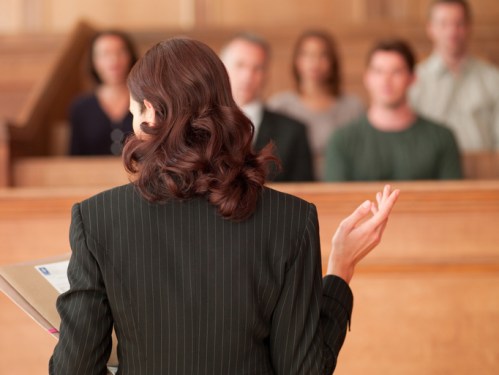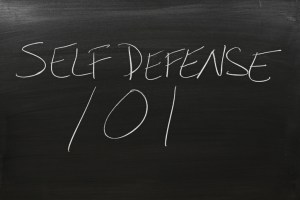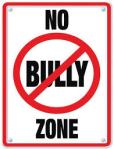Much like regular trials, mock trials are shutdown and everything is on hold. And unlike math class, where your teacher can do quadratic equations on a whiteboard through Zoom, it is pretty hard to teach (or coach) mock trial in the virtual world. But this doesn’t mean you have to let your mock trial skills get rusty. This is a good time to check out some resources online. So while you are quarantining or sheltering in place, here are 5 of the best closing arguments (real and fictional) that are out there.
1. For The People: This clip is the prosecutor closing. The closing is persuasive and emotionally powerful, but as a mocktrialer you will notice something else that this prosecutor does right. He spells out each element of the offense and explains why he has proved each one and met his burden of proof. He explains that certain elements are uncontroverted, and then gets straight to the point of what is really at issue in his case. And does so with panache.
2. Ally McBeal S2E1: The clip is a defense attorney closing. The episode is Season 2, Episode 1 of a show called Ally McBeal. This clip isn’t on YouTube so you can only watch it on Hulu (unless your mom has the whole series on box set).
The attorney John Cage is defending a woman accused of having a relationship with a teenaged boy. Although the attorney uses a sense of humor that wouldn’t be appropriate in court (though it works on a sitcom), the closing argument is nevertheless an exceptional example of a closing that hints at jury nullification, i.e. asking the jurors, in essence, to ignore the law and do what they feel is right.
3. Johnny Cochran Defending OJ Simpson: I was a young prosecutor in 1995 when the OJ Simpson case was going on. The defense lawyer’s phrase “if it (the glove) doesn’t fit, you must acquit” has since become somewhat of a cliche, but the closing is instrumental in instructing mock trial students about the value in catchy phrases to get your fundamental point across. The mistake some mocktrialers make is they use a phrase that echoes “the glove doesn’t fit” in ways that are obvious. You will want to make sure your phrase is original. At the time of the OJ trial, some legal commentators thought of Johnny Cochran’s phrasing as kind of corny, but as a brilliant trial lawyer, he understood his audience wasn’t the legal community – it was a jury of 12 in Los Angeles.
4. To Kill a Mocking Bird: In this classic closing argument, the defense lawyer hits all the important points. He highlights the lack of any physical or medical evidence. This always needs to be done. Also, notice the attorney’s tempo. So often mock trial students just deliver their closings way too fast, like they are in a hurry and just want to sit back down. If you have made a good point, you can pause for a few seconds to let it sink in and give some dramatic effect. The defense lawyer wisely expresses some measure of sympathy for the accuser before leveling criticisms toward her. Lastly, note the posture of the prosecutor while he sits there – don’t sit like that!
5. Devon Robinson Trial: Ok those last three examples are all from back in the day. So let’s turn to a real good recent closing argument. The Devon Robinson case is so recent the defense lawyer actually thanks the jury for their participation during the start of the Covid-19 pandemic. Mock trial students should notice this lawyer’s excellent courtroom style. She speaks clearly and confidently with little to no use of notes. She also does a good job of integrating technology into her closing. She doesn’t stop and start her closing to use the technology, she joins them together. She uses the defendant’s own words against him with persuasive effect.
What did I miss? What closing arguments do you like? Which one out there are inspirational? Please share your thoughts in the comment section below!







